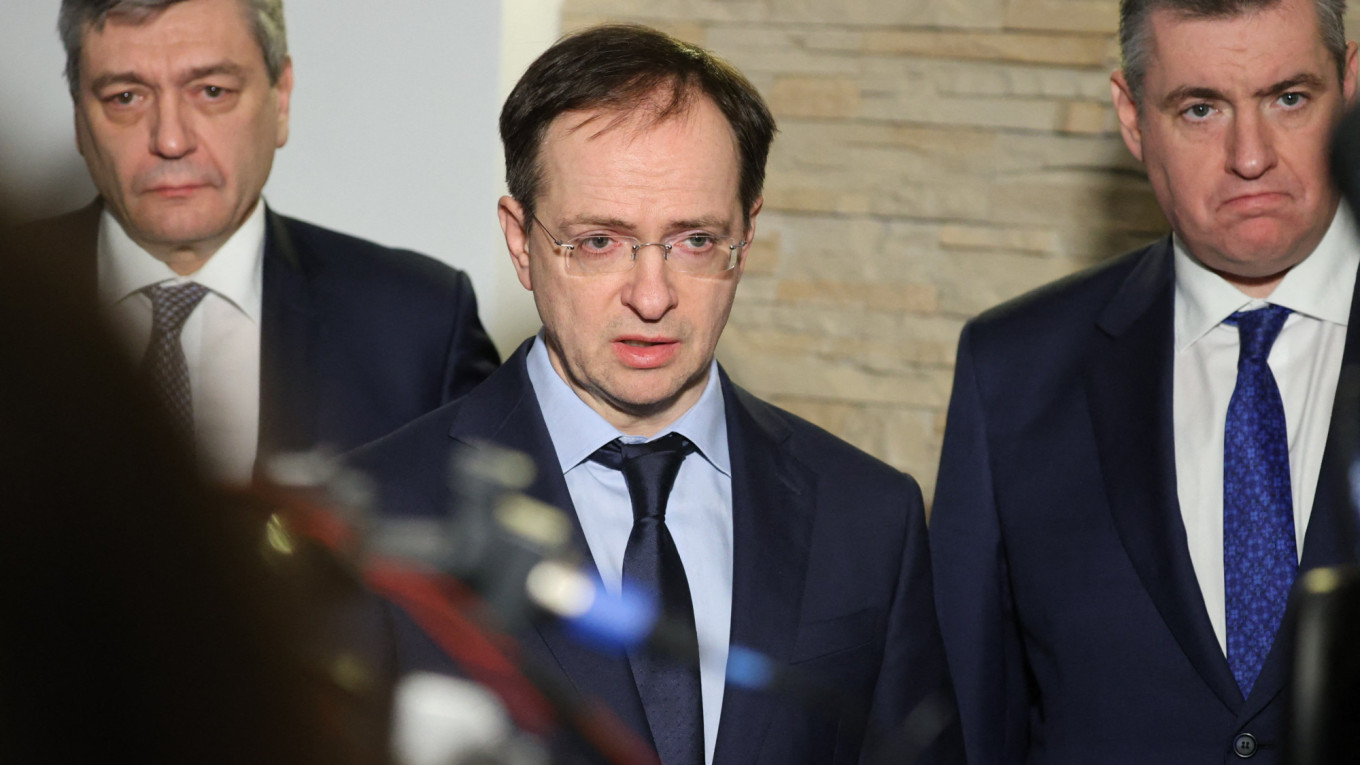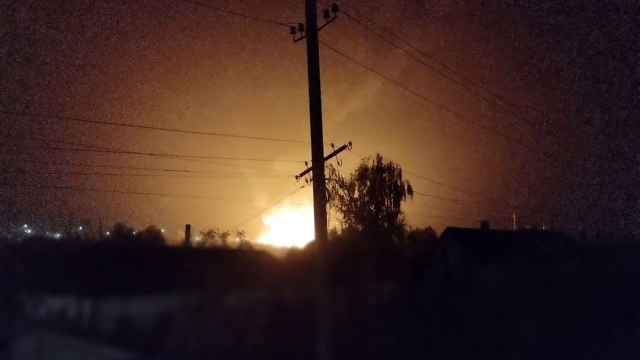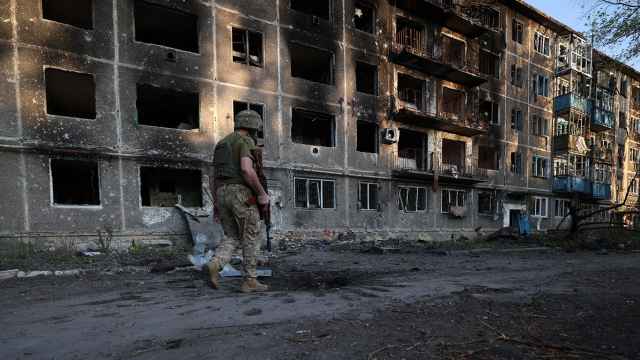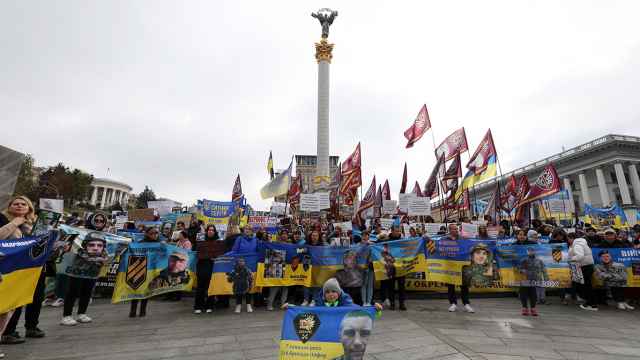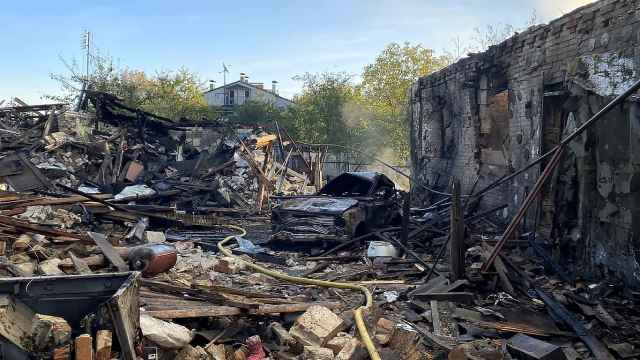President Vladimir Putin will not travel to Istanbul to attend Thursday’s direct talks with Ukraine, according to a directive published by the Kremlin late Wednesday.
Instead, presidential aide Vladimir Medinsky, who led previous rounds of failed negotiations with Ukraine in March and April of 2022, was named head of the Russian delegation.
Medinsky will be joined by Deputy Foreign Minister Mikhail Galuzin, Deputy Defense Minister Alexander Fomin and Igor Kostyukov, the head of Russia’s military intelligence agency (GRU).
The Kremlin directive also names a group of expert advisers, including senior officials from the Foreign and Defense Ministries and the presidential administration.
Moscow had previously hesitated to confirm delegates for the negotiations in Istanbul, which Putin unilaterally announced during a surprise conference in the early hours of Sunday as a counteroffer to Western-backed calls for a 30-day ceasefire in Ukraine.
Ukrainian President Volodymyr Zelensky challenged the Russian leader to meet with him in person during the talks, arguing that his attendance, or lack thereof, would show whether Moscow was ready to negotiate in good faith.
The Kremlin directive published Wednesday did not list Putin among the officials expected to take part in the negotiations, and top spokesman Dmitry Peskov later confirmed that the president would not travel to Turkey for the talks.
Zelensky has said that he would only meet with Putin in Turkey, refusing to sit down with lower-level Russian officials.
Russian officials earlier told The Moscow Times that Putin did not plan on meeting with the Ukrainian president at this stage in the talks, saying that the Kremlin leader does not see Zelensky as his equal and will only agree to meet him in the event of his “public capitulation.”
An unnamed Ukrainian official told Reuters late Wednesday that Zelensky was on his way to Ankara, where he earlier said he plans to meet with Turkish President Recep Tayyip Erdoğan.
After the Kremlin published its official list of delegates for the Istanbul talks, a White House official told Reuters that U.S. President Donald Trump, who is currently traveling in the Middle East, would also skip the talks.
Trump had said he would consider attending the negotiations if he thought “it would be helpful.”
Trump envoy Steve Witkoff and U.S. Secretary of State Marco Rubio confirmed that they will travel to Turkey on Friday for Russia-Ukraine talks, but it was not immediately clear what role they intend to play in the discussions.
Thursday’s negotiations in Istanbul, if they go through, would mark the first direct meeting between Russia and Ukraine since early 2022, when peace talks collapsed amid Russian demands that Ukraine abandon its bid to join NATO and drastically reduce the size of its military.
Ukraine, in its turn, refused to recognize Russia’s control over the eastern Luhansk and Donetsk regions, as well as the Crimean peninsula, which Moscow annexed in 2014. Kyiv also dismissed demands to pay for the reconstruction of war-torn areas on Russian terms.
Reuters contributed reporting.
A Message from The Moscow Times:
Dear readers,
We are facing unprecedented challenges. Russia's Prosecutor General's Office has designated The Moscow Times as an "undesirable" organization, criminalizing our work and putting our staff at risk of prosecution. This follows our earlier unjust labeling as a "foreign agent."
These actions are direct attempts to silence independent journalism in Russia. The authorities claim our work "discredits the decisions of the Russian leadership." We see things differently: we strive to provide accurate, unbiased reporting on Russia.
We, the journalists of The Moscow Times, refuse to be silenced. But to continue our work, we need your help.
Your support, no matter how small, makes a world of difference. If you can, please support us monthly starting from just $2. It's quick to set up, and every contribution makes a significant impact.
By supporting The Moscow Times, you're defending open, independent journalism in the face of repression. Thank you for standing with us.
Remind me later.


